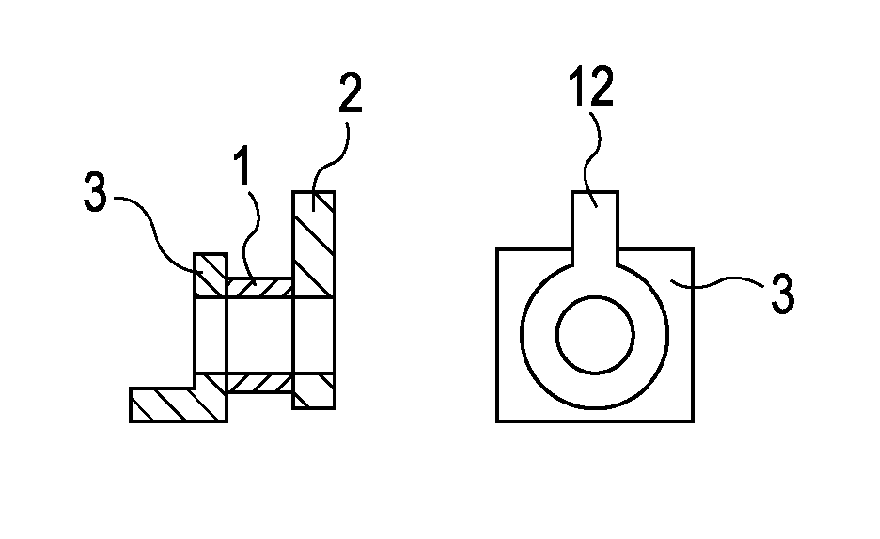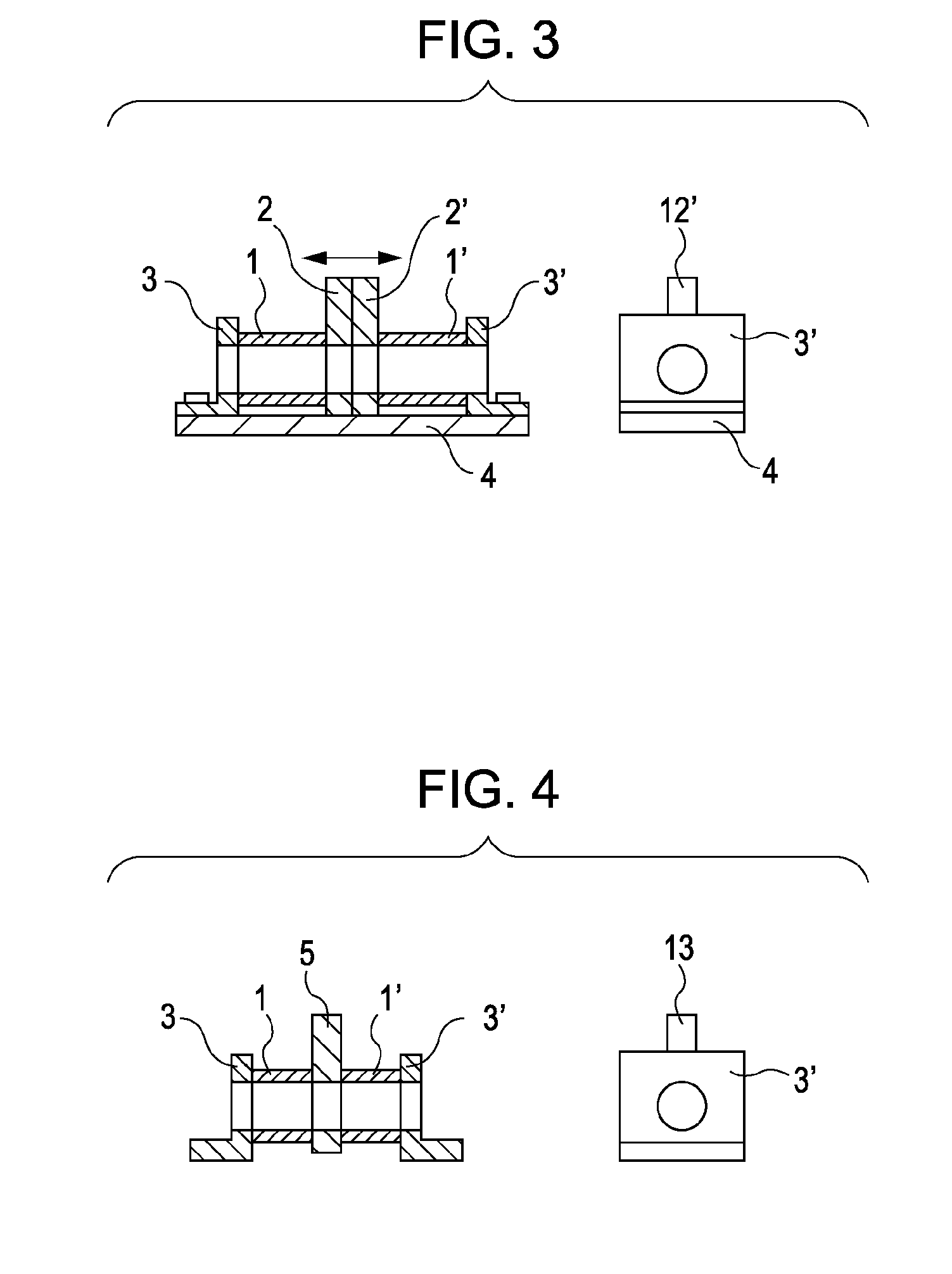Optical Device
- Summary
- Abstract
- Description
- Claims
- Application Information
AI Technical Summary
Benefits of technology
Problems solved by technology
Method used
Image
Examples
first exemplary embodiment
[0047] FIGS. 1 to 5 illustrate structures of actuators according to a first exemplary embodiment.
[0048] Cylindrical actuator elements 1 and 1′ are composed of an electroactive polymer. In this exemplary embodiment, the material may be an acrylic or silicone dielectric elastomer disclosed in U.S. Pat. No. 6,891,317, or may have properties shown in Table 1 (J. D. W. Madden; Artificial Muscle Technology: Physical Principles and Naval Prospects; IEEE Journal of Oceanic Engineering; July 2004, Vol. 29, No. 3). However, the material is not limited to these.
[0049] Holding members 2, 3, and 5 are mechanical components for holding the actuator elements 1 and 1′, and are bonded to either end of the actuator elements 1 and 1′. Moreover, the holding members 2 and 5 include keys 12 and 13, respectively, that are mechanically connected to loads. In this exemplary embodiment, the driving force of the actuators is transmitted via the keys 12 and 13. Flat plates 4 apply prestrain to the actuator e...
second exemplary embodiment
[0067] An actuator unit according to another exemplary embodiment will now be described with reference to FIGS. 6 and 7.
[0068] In order to prestrain the actuator elements, a stepped shaft 18 shown in FIGS. 6 and 7 may be employed in this exemplary embodiment instead of the flat plate according to the above-described exemplary embodiment.
[0069] In this case, a holding member 14 has a tapped hole 14a that is engaged with a threaded portion 18a of the stepped shaft 18. The leading end 18b of the stepped shaft 18 is fitted into a hole 15a of a holding member 15 while the threaded portion 18a proceeds into the tapped hole 14a of the holding member 14, and the stepped portion of the stepped shaft 18 presses the holding member 15. The actuator elements 1 and 1′ are extended and prestrained while the threaded portion 18a further proceeds into the tapped hole 14a. The holding member 5 can slide on the stepped shaft 18. The hole of the holding member 5 and the sliding portion of the stepped...
third exemplary embodiment
[0071] Next, a third exemplary embodiment will be described with reference to FIGS. 10, 11, 17, 18, and 19. FIGS. 10 and 11 illustrate the structure according to the third exemplary embodiment. The structure of the actuator unit according to the third exemplary embodiment is the same as that of the actuator unit according to the first exemplary embodiment shown in FIG. 4 except that the actuator unit according to the third exemplary embodiment includes a shaft 19. The shaft 19 is clamped to the holding member 5 so as to be integrated with the holding member 5. The shaft 19 is engaged with holes of the holding members 3 and 3′ so as to be slidable. The holes of the holding members 3 and 3′ are covered with a low-friction coating as in the second exemplary embodiment. FIG. 10 illustrates the actuator unit before the actuator elements 1 and 1′ are prestrained. FIG. 11 illustrates the actuator unit when the holding members 3 and 3′ are fixed to the flat plate 4 such that the actuator el...
PUM
 Login to View More
Login to View More Abstract
Description
Claims
Application Information
 Login to View More
Login to View More - R&D
- Intellectual Property
- Life Sciences
- Materials
- Tech Scout
- Unparalleled Data Quality
- Higher Quality Content
- 60% Fewer Hallucinations
Browse by: Latest US Patents, China's latest patents, Technical Efficacy Thesaurus, Application Domain, Technology Topic, Popular Technical Reports.
© 2025 PatSnap. All rights reserved.Legal|Privacy policy|Modern Slavery Act Transparency Statement|Sitemap|About US| Contact US: help@patsnap.com



